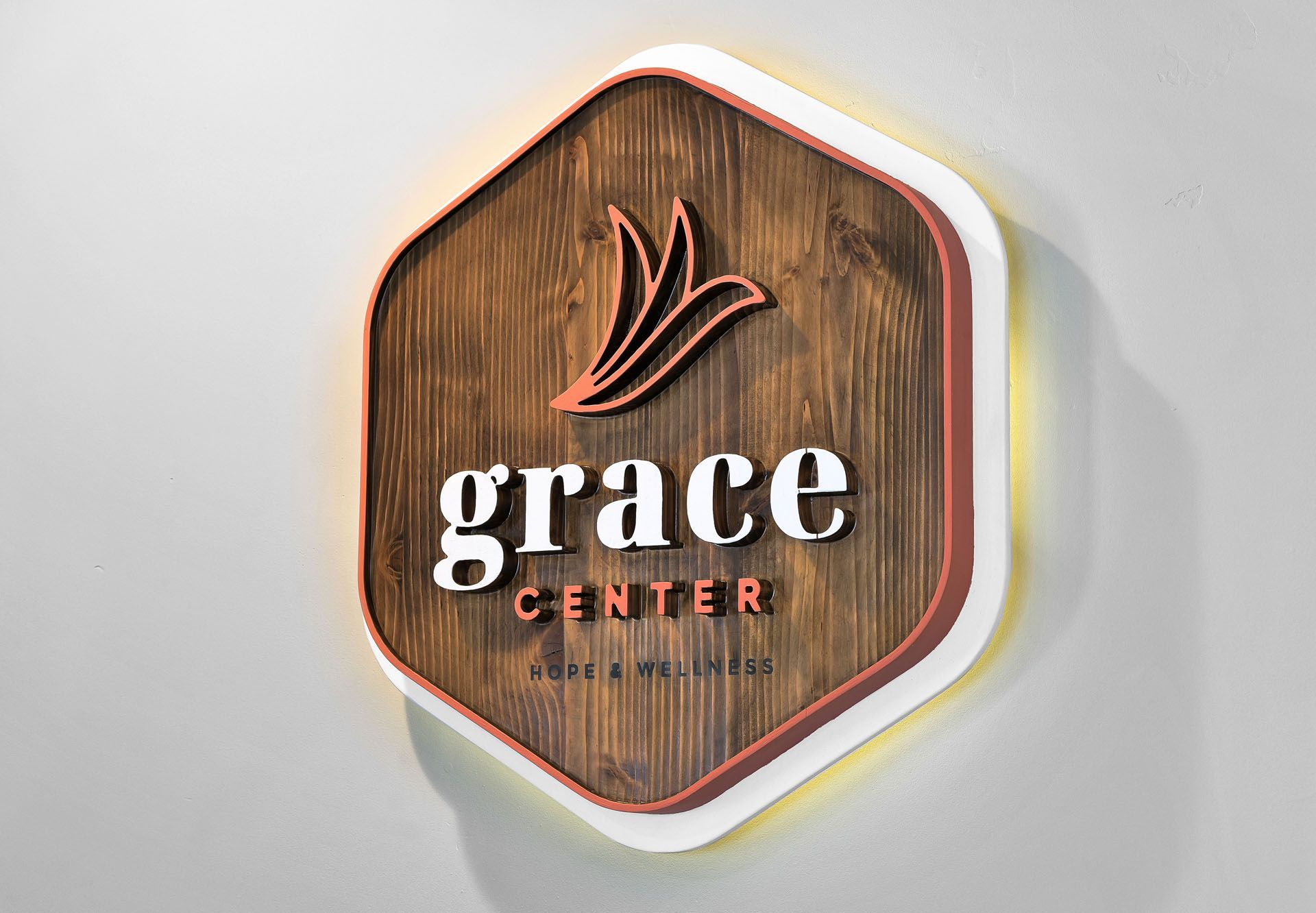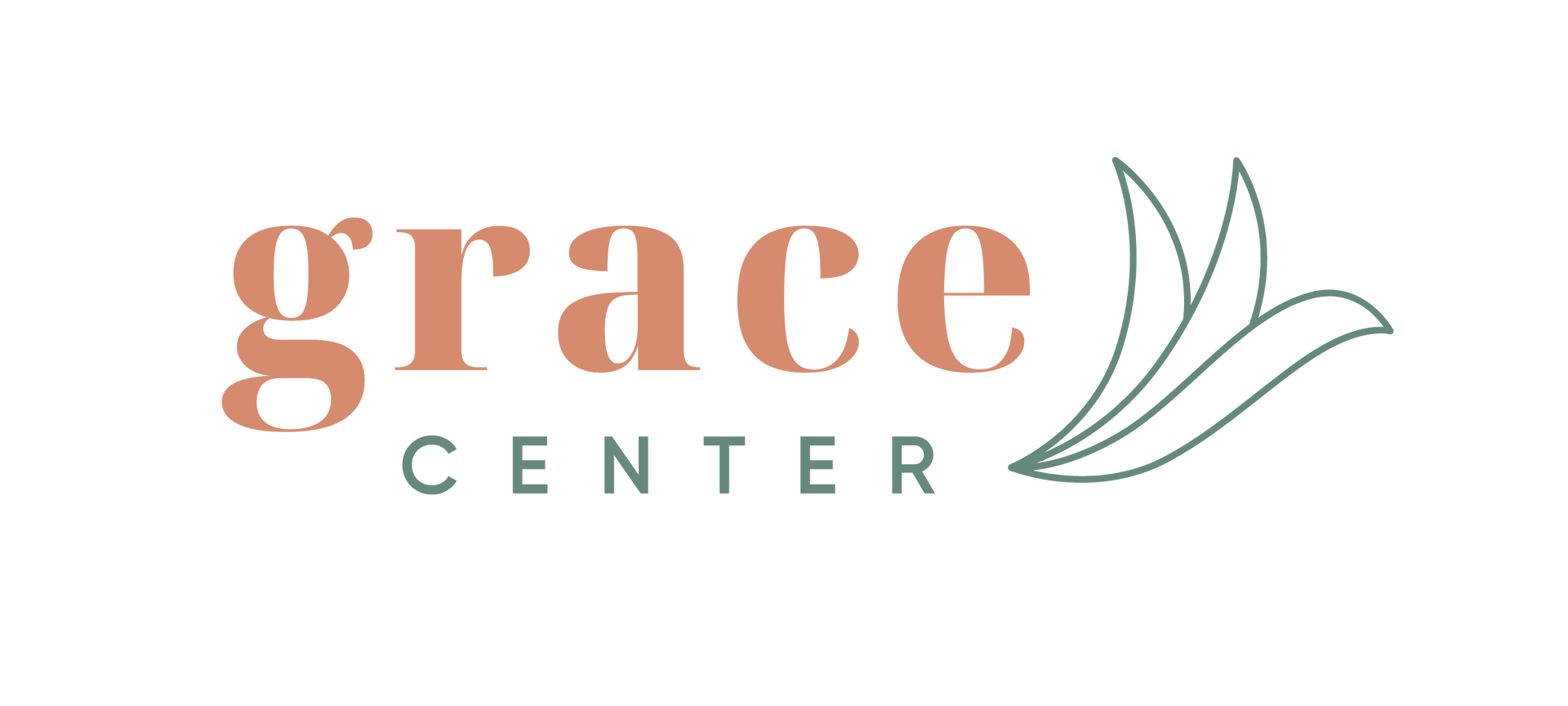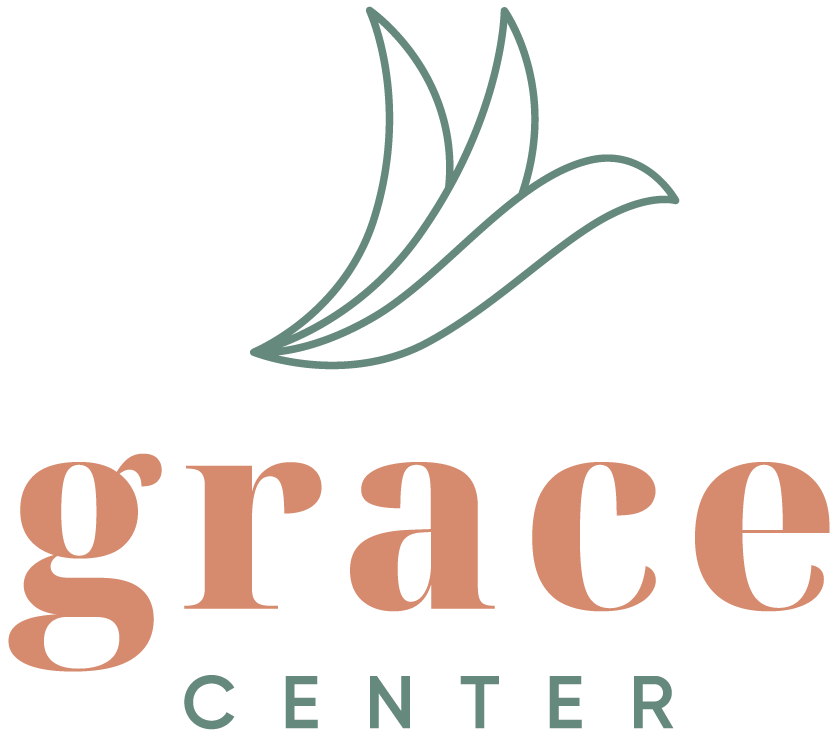Blog
Blog

By Daisy Wick
•
November 7, 2024
At Grace Center, we believe in the power of compassionate counseling to help individuals overcome addiction and find lasting freedom. Addiction can affect every area of life, and breaking free from its grip requires support, understanding, and tools for personal growth. Counseling provides a safe, structured environment where individuals can address the root causes of addiction and learn strategies for living a healthier, addiction-free life. mon Why Counseling is Effective in Ending Addiction Counseling is an evidence-based approach that offers many benefits for those seeking to overcome addiction. Through professional support, individuals can identify the underlying factors that contribute to addictive behaviors and develop healthier ways of coping. Here are some key reasons why counseling is a critical step toward ending addiction: Identifying Root Causes Many people turn to substance use or other addictive behaviors as a way to cope with difficult emotions or unresolved trauma. Counseling provides a space for individuals to explore the underlying issues driving their addiction. Understanding these root causes is essential for creating meaningful change and preventing relapse. Building Healthy Coping Mechanisms A common struggle for those with addiction is the lack of healthy coping strategies. In counseling, individuals can learn alternative methods for handling stress, anxiety, depression, and other emotional triggers. By developing these skills, they can replace destructive habits with constructive ones that promote overall well-being. Personalized Treatment Plans Every person’s journey with addiction is unique, and there’s no one-size-fits-all solution. Professional counseling provides a personalized approach that addresses the specific needs and circumstances of each individual. Counselors can tailor treatment plans that include a combination of therapy types, such as cognitive-behavioral therapy (CBT), motivational interviewing, and faith-based counseling. Building Self-Esteem and Resilience Addiction can erode self-confidence and create feelings of shame or worthlessness. Counseling helps individuals rebuild their self-esteem and cultivate resilience. These qualities are essential for maintaining long-term recovery, as they empower people to face challenges without resorting to old habits. Strengthening Relationships Addiction often strains relationships with family and friends. Counseling provides a space to address these issues, helping individuals reconnect with loved ones and repair damaged relationships. Many counseling programs also offer family therapy, which allows families to understand addiction’s impact and learn ways to support their loved one’s recovery journey. Types of Counseling That Support Addiction Recovery There are several types of counseling that can be effective in addressing addiction. At Grace Center, we offer a variety of therapeutic approaches to meet each individual’s unique needs and preferences. Individual Counseling One-on-one sessions with a counselor provide a safe and private setting to address personal struggles. Individual counseling allows clients to dive deep into their experiences and receive focused support. It is especially helpful for exploring personal triggers, past traumas, and mental health issues that contribute to addiction. Group Therapy Group counseling offers the opportunity to connect with others who understand the challenges of addiction firsthand. In group therapy, individuals can share their stories, offer mutual support, and learn from others’ experiences. This sense of community is invaluable for many people in recovery, as it reinforces the understanding that they are not alone in their journey. Family Counseling Addiction affects the entire family, and healing as a unit can be transformative. Family counseling helps rebuild trust, improve communication, and foster a supportive environment that promotes recovery. For those with loved ones who are trying to support their journey, family counseling can be a powerful tool for creating a positive, understanding home environment. Faith-Based Counseling At Grace Center, we offer faith-based counseling for those who want to incorporate their spiritual beliefs into the healing process. Our counselors provide biblically-informed support, helping individuals find strength and encouragement through faith. Faith-based counseling is particularly effective for those who draw meaning, purpose, and resilience from their spiritual beliefs. Cognitive Behavioral Therapy (CBT) CBT is an evidence-based approach that focuses on identifying and changing negative thought patterns that lead to addictive behaviors. Through CBT, individuals learn how to replace self-destructive thoughts and behaviors with healthier alternatives. This approach is widely used in addiction treatment and has shown positive results in helping people achieve and maintain recovery. How Counseling Helps Prevent Relapse Recovery from addiction is a lifelong process, and counseling plays a crucial role in helping individuals prevent relapse. Here are some ways counseling supports long-term recovery: Developing a Relapse Prevention Plan: Counselors work with clients to identify potential triggers and develop strategies to manage them. By having a personalized relapse prevention plan in place, individuals feel more prepared to handle challenges in a healthy way. Building Accountability: Regular counseling sessions offer a source of accountability. Knowing they have someone to check in with encourages individuals to stay committed to their recovery goals. Creating a Support System: Counseling often connects individuals with a broader support network. This support can come from peer groups, family members, and counselors who understand the ups and downs of recovery. Encouraging Self-Care and Mindfulness: Counselors help individuals incorporate self-care and mindfulness into their daily lives. These practices are essential for managing stress and improving mental health, both of which are critical to avoiding relapse. Why Choose Grace Center for Addiction Counseling? At Grace Center, we provide compassionate, professional support for those seeking to end addiction and begin a journey of lasting recovery. Our faith-based approach to counseling combines evidence-based therapeutic methods with spiritual support, offering a holistic path to healing. Here’s what makes Grace Center a trusted partner in addiction recovery: Experienced Counselors: Our team of skilled, licensed counselors has extensive experience helping individuals overcome addiction. We understand the complexities of addiction and provide tailored, effective support. Biblically-Informed Care: For those who find strength in their faith, we offer counseling that aligns with Christian values. We help clients draw on spiritual resources to find resilience, hope, and healing. Comprehensive Counseling Programs: From individual therapy to family support, we offer a range of counseling services designed to address every aspect of addiction. Our programs focus on healing the mind, body, and spirit. Start Your Recovery Journey with Grace Center If you or a loved one is struggling with addiction, counseling at Grace Center can be a powerful first step toward a life free from addiction. Our compassionate team is here to support you every step of the way, offering tools, encouragement, and hope for lasting recovery. Contact us today to learn more about our addiction counseling services and start your journey to freedom. At Grace Center, we’re committed to helping individuals overcome addiction and discover a life of purpose, peace, and health.

By Daisy Wick
•
October 16, 2024
Join Us for the Grace Center Fundraiser Gala: Supporting Biblical Counseling Services We are thrilled to announce that Grace Center will be hosting a Fundraiser Gala in November to benefit our biblical counseling services. This special event will be an evening of community, inspiration, and impact as we come together to support the life-changing work of faith-based mental health care. Why We Need Your Support At Grace Center, we believe that true healing comes from addressing both the spiritual and emotional needs of individuals. Our biblical counseling services are grounded in faith and rooted in the belief that God’s grace has the power to transform lives. Through these services, we provide compassionate guidance and support for those facing a wide range of challenges, from anxiety and depression to trauma and relationship struggles. The demand for mental health services continues to grow, and many individuals who need help are unable to afford it. By attending the gala, you will be directly supporting those in need, allowing us to expand our services and ensure that everyone, regardless of financial ability, has access to the care they need. What to Expect at the Gala The November gala will be a night to remember, filled with opportunities to connect with others who share a passion for bringing hope and healing to our community. The event will feature: A delicious dinner catered by Texas Roadhouse Online auction Inspirational stories from individuals whose lives have been transformed through our counseling services Opportunities to donate and contribute to this important cause Whether you are a long-time supporter of Grace Center or attending for the first time, this is your chance to make a tangible difference in the lives of others while enjoying a meaningful and uplifting evening. How You Can Get Involved We invite you to join us for this special event and become a part of the Grace Center family. You can purchase tickets or find more details about the event by visiting our Eventbrite page https://www.eventbrite.com/e/grace-center-fundraiser-dinner-auction-tickets-1013835026857?aff=oddtdtcreator If you are unable to attend but would still like to support our mission, we encourage you to consider making a donation. Every contribution, no matter the size, helps us continue to provide the biblical counseling services that so many individuals rely on. Make a Difference The Grace Center Fundraiser Gala is more than just an event—it’s an opportunity to bring light into the lives of those who are struggling and to offer hope that is grounded in faith. Your participation and generosity will have a lasting impact on the individuals and families we serve, helping them navigate their journeys with the strength that comes from God’s grace. Save the date and join us this November for an unforgettable night that will uplift our community and transform lives. Together, we can bring healing and hope to those in need.

By Daisy Wick
•
September 19, 2024
At Grace Center, we are dedicated to offering faith-based, affordable biblical counseling to individuals and families in need. Our mission is rooted in providing compassionate, God-centered mental health support, and the community plays a vital role in helping us fulfill this purpose. Here are a few ways you can contribute: Financial Donations: Every contribution, big or small, directly supports our counseling services, making it possible to keep our rates affordable. Volunteer Your Time: Whether you have administrative skills, counseling experience, or simply a heart for helping others, your time can make a significant impact. Spread the Word: Help raise awareness by sharing our mission with friends, family, and social networks. The more people know about our services, the more individuals we can reach. Attend and Support Events: Join us at our fundraising events or workshops. These events are crucial to raising the funds necessary to continue offering affordable counseling. Through the support of our community, Grace Center can continue to provide accessible biblical counseling to those in need. Your involvement helps us serve as a beacon of hope and healing, ensuring that faith-based mental health support remains within reach for all. Visit GraceCenter.com to learn more about how you can be part of our mission!

By Daisy Wick
•
July 29, 2024
In today's fast-paced world, the significance of mental health cannot be overstated. It affects how we think, feel, and act, influencing every aspect of our lives. At Grace Center, we understand the profound impact that mental health has on overall well-being and the unique role that faith-based counseling can play in the journey toward recovery. Here’s why mental health matters and how faith-based counseling can help people find hope, healing, and resilience. The Importance of Mental Health Mental health is as crucial as physical health. It encompasses our emotional, psychological, and social well-being. Here’s why it’s vital: Quality of Life: Good mental health enhances the quality of life, allowing individuals to enjoy meaningful relationships, pursue goals, and cope with the inevitable stresses of life. Physical Health: There is a strong connection between mental and physical health. Chronic stress and untreated mental health issues can lead to various physical health problems, including heart disease, diabetes, and weakened immune function. Productivity: Mental well-being affects productivity and performance at work or school. Those with good mental health are more likely to be engaged, focused, and effective in their endeavors. Community and Relationships: Mental health influences how we interact with others. Healthy mental states foster better relationships, enhancing social connections and community involvement. Challenges in Mental Health Despite its importance, mental health is often neglected due to stigma, lack of awareness, or limited access to resources. Common mental health issues include anxiety, depression, stress, and trauma, which can significantly impair daily functioning and happiness. The Role of Faith-Based Counseling Faith-based counseling integrates psychological principles with spiritual insights, providing a holistic approach to mental health. Here’s how it can help: Spiritual Support and Comfort: Faith-based counseling offers spiritual support that can provide comfort and hope during difficult times. For many, faith is a source of strength that helps them navigate life’s challenges. Holistic Healing: This approach addresses the whole person—mind, body, and spirit. It acknowledges the interconnectedness of these aspects and aims to promote overall well-being. Community and Belonging: Faith-based counseling often involves a sense of community. Being part of a supportive faith community can provide a sense of belonging and reduce feelings of isolation. Purpose and Meaning: Faith can provide a sense of purpose and meaning in life, which is crucial for mental health. Understanding one's purpose and having a sense of direction can significantly enhance emotional well-being. Forgiveness and Acceptance: Many faith traditions emphasize forgiveness, acceptance, and love. These principles can be powerful tools in the healing process, helping individuals to let go of past hurts and embrace a more positive future. How Grace Center Can Help At Grace Center, we are dedicated to channeling God’s grace through our faith-based mental health services. Here’s what sets us apart: Qualified Counselors: Our team comprises licensed counselors who are also well-versed in spiritual matters, ensuring a comprehensive approach to your mental health needs. Personalized Care: We recognize that each individual’s journey is unique. Our counselors provide personalized care tailored to your specific needs and spiritual beliefs. Supportive Environment: Grace Center offers a compassionate, non-judgmental space where you can explore your thoughts and feelings freely. Faith Integration: We incorporate faith-based principles and practices into our counseling sessions, helping you to draw strength from your beliefs and find deeper healing. Holistic Programs: Our programs are designed to address various aspects of mental health, from individual counseling and group therapy to workshops and spiritual retreats. Mental health matters because it affects every part of our lives. At Grace Center, we believe in the power of combining faith and therapy to foster true healing and recovery. Faith-based counseling can offer unique benefits, providing spiritual support, a sense of purpose, and a holistic approach to mental well-being. If you or a loved one is struggling with mental health issues, know that you don’t have to face it alone. Contact Grace Center today to learn more about our faith-based counseling services and begin your journey toward healing and renewal. Together, we can navigate the challenges and embrace the promise of a healthier, more fulfilling life.

By Daisy Wick
•
June 26, 2024
At Grace Center, we believe that true healing encompasses the mind, body, and spirit. Our mission is to provide mental health counseling that not only addresses psychological and emotional needs but also nurtures the spiritual well-being of our clients. Central to our approach is the concept of God's grace, which guides and inspires our work every day. Understanding God's Grace God's grace is the unmerited favor and love that He extends to all of us. It is a gift that we cannot earn but are freely given. This divine grace provides comfort, strength, and hope, even in the darkest of times. At Grace Center, we strive to channel this grace through our counseling services, offering a supportive and compassionate environment where clients can experience healing and transformation. Faith-Based Counseling: Integrating Spirituality and Mental Health Faith-based counseling at Grace Center integrates traditional therapeutic techniques with spiritual principles. We understand that faith can play a crucial role in the healing process, offering a sense of purpose, hope, and community. Our counselors are trained to incorporate biblical teachings and spiritual practices into their sessions, helping clients to draw on their faith as a source of strength and resilience. Providing Compassionate Care Compassion is at the heart of God's grace, and it is also at the heart of our counseling services. We approach each client with empathy and understanding, recognizing the unique challenges they face. Our goal is to create a safe and supportive space where clients feel valued and heard. By embodying God's grace in our interactions, we aim to offer a sense of peace and comfort to those in need. Empowering Clients Through Faith One of the ways we channel God's grace is by empowering our clients to tap into their own spiritual resources. We encourage them to explore their faith and to use it as a foundation for their mental health journey. Whether it's through prayer, meditation, or reflection on scripture, we help clients to find solace and strength in their relationship with God. Building a Community of Support Grace Center is more than just a counseling service; it is a community. We believe that healing is often facilitated by a sense of belonging and connection with others. Our faith-based approach fosters a supportive community where clients can share their experiences and draw strength from one another. This communal aspect of our work reflects God's grace in action, as we support and uplift each other in our journeys. Transforming Lives Through Grace The ultimate goal of our work at Grace Center is to facilitate transformation. By channeling God's grace, we aim to help clients overcome their struggles and achieve a sense of wholeness and well-being. We have witnessed countless lives transformed by the power of faith and the support of compassionate counseling. These stories of healing and renewal are a testament to the profound impact of God's grace. At Grace Center, we are dedicated to providing mental health counseling that channels God's grace into every aspect of our work. We believe that by integrating faith and therapeutic practices, we can offer a holistic approach to healing that addresses the needs of the mind, body, and spirit. Our commitment to compassion, empowerment, and community reflects the divine grace that inspires us. If you or someone you know is in need of support, we invite you to experience the healing power of faith-based counseling at Grace Center. Let us walk with you on your journey towards wholeness and peace.

By Daisy Wick
•
June 18, 2024
In recent years, the mental health crisis in America has reached unprecedented levels, affecting millions of individuals across all demographics. At Grace Center, we are committed to understanding and addressing the root causes of this alarming trend. But why has the mental health situation deteriorated so significantly? Pandemic Impact The COVID-19 pandemic has been a major catalyst in the worsening mental health crisis. The sudden and prolonged changes brought about by the pandemic, including lockdowns, social distancing, and the fear of illness, have led to increased feelings of anxiety, depression, and isolation. The disruption of daily routines and the uncertainty about the future have further exacerbated these issues. Economic Stress Economic instability has also played a significant role. Many individuals have faced job losses, reduced income, and financial insecurity, leading to heightened stress and anxiety. The strain of meeting basic needs under economic pressure can severely impact mental well-being. Social Isolation Social isolation, a byproduct of the pandemic, has significantly affected mental health. Humans are inherently social beings, and the lack of physical interaction with friends, family, and colleagues has led to increased feelings of loneliness and isolation. This disconnection from social support networks has made it more difficult for many to cope with stress and emotional challenges. Healthcare Access Access to mental health care remains a significant barrier. Despite the increased need, many people still face difficulties in accessing timely and effective mental health services due to financial constraints, lack of insurance, or limited availability of providers. This gap in care has left many without the support they need to manage their mental health. Increased Awareness and Stigma Reduction While increased awareness of mental health issues is generally positive, it has also contributed to the rising numbers as more individuals feel comfortable seeking help and reporting their struggles. However, despite this progress, stigma around mental health still exists, preventing some from seeking the help they need. Substance Abuse The rise in substance abuse, often as a coping mechanism for stress and mental health issues, has further compounded the crisis. Substance abuse can exacerbate mental health conditions, creating a vicious cycle that is difficult to break without comprehensive treatment. Youth and Adolescent Struggles Younger populations, particularly adolescents, have experienced significant mental health challenges. Factors such as academic pressure, social media influence, and a lack of in-person social interactions have contributed to increasing rates of anxiety, depression, and suicidal thoughts among youth. The mental health crisis in America has worsened due to a confluence of factors, including the pandemic, economic stress, social isolation, and barriers to healthcare. At Grace Center, we recognize the complexity of these issues and are dedicated to providing the support and resources needed to help individuals navigate these challenging times. Addressing this crisis requires a multifaceted approach, including improving access to care, reducing stigma, and fostering supportive communities.

By Daisy Wick
•
March 6, 2024
In the pursuit of mental health and well-being, individuals often seek solace, support, and guidance from various sources. For many, faith plays a pivotal role in their journey toward healing and wholeness. At Grace Center in Nampa, Idaho, faith-based mental health services offer a unique and compassionate approach to addressing the complexities of mental illness and emotional distress. Join us as we explore the transformative power of faith-based mental health services at Grace Center and the hope it brings to individuals and families in the Boise community. Understanding Faith-Based Mental Health Services Faith-based mental health services integrate principles of spirituality, compassion, and holistic healing into the therapeutic process. Rooted in faith traditions and spiritual values, these services offer a safe and supportive environment where individuals can explore their deepest fears, struggles, and vulnerabilities while drawing strength and inspiration from their faith. At Grace Center, our faith-based approach to mental health emphasizes the interconnectedness of mind, body, and spirit, recognizing the profound impact that spirituality can have on emotional well-being and resilience. The Grace Center Difference What sets Grace Center apart is our unwavering commitment to providing compassionate, personalized, and faith-centered care to individuals of all backgrounds and beliefs. Our team of licensed therapists, counselors, and spiritual advisors bring a wealth of experience, expertise, and empathy to every session, creating a welcoming and inclusive space where healing and transformation can take place. Whether you're struggling with depression, anxiety, trauma, grief, or relationship issues, we're here to walk alongside you on your journey toward wholeness and healing. Our Range of Services At Grace Center, we offer a comprehensive range of faith-based mental health services designed to meet the unique needs and challenges of individuals and families in the Boise area: Individual Counseling: Our licensed therapists provide one-on-one counseling sessions tailored to your specific concerns and goals, helping you navigate life's challenges with grace, courage, and resilience. Family Counseling: We offer family counseling services to strengthen communication, resolve conflicts, and foster healing within familial relationships, creating a supportive and nurturing environment for growth and transformation. Group Therapy: Our group therapy sessions provide a supportive and collaborative space where individuals can connect, share, and learn from one another's experiences, finding solace and solidarity in a community of faith and compassion. Spiritual Support: In addition to traditional counseling services, we offer spiritual support and guidance to individuals seeking to explore and deepen their faith journey, providing a source of strength, comfort, and hope in times of uncertainty and doubt. Experience Healing and Wholeness at Grace Center At Grace Center, we believe that healing is not just a destination but a journey—a sacred and transformative journey of self-discovery, growth, and restoration. Whether you're struggling with mental health challenges, emotional distress, or spiritual doubt, we're here to offer support, encouragement, and companionship along the way. With our faith-based approach to mental health services, you can find healing, hope, and renewal in the embrace of grace and love. In conclusion, faith-based mental health services at Grace Center offer a unique and holistic approach to healing and wholeness, integrating principles of spirituality, compassion, and faith into the therapeutic process. With our compassionate care and unwavering commitment to your well-being, we're here to walk alongside you on your journey toward healing, hope, and transformation. Contact us today to learn more about our services and take the first step toward a brighter, more fulfilling future.

By Daisy Wick
•
February 1, 2024
In the labyrinth of life's challenges and uncertainties, the journey toward mental wellness can often feel like an uphill battle. Yet, for many individuals, faith emerges as a steadfast companion—a beacon of hope and solace that illuminates the path forward. In this blog, we explore the transformative power of faith in navigating the complexities of mental wellness, and how drawing upon spiritual beliefs can provide strength, resilience, and comfort along the way. A Source of Comfort and Support: At its core, faith represents a deeply personal connection to something greater than oneself—an unwavering belief in the divine, the spiritual, or the transcendent. For individuals grappling with mental health challenges, faith serves as a source of comfort and support, offering solace in times of distress and a sense of belonging in a world that often feels fragmented and uncertain. Finding Meaning and Purpose: In the midst of darkness and despair, faith has the remarkable ability to infuse life with meaning and purpose. Through the lens of spiritual beliefs, individuals can find solace in the notion that their struggles are not in vain—that every trial and tribulation serves a greater purpose, leading toward growth, resilience, and eventual renewal. Cultivating Resilience and Hope: In the face of adversity, faith cultivates resilience—a deep-seated belief that, even in the darkest of moments, there exists a glimmer of hope. Through prayer, meditation, and reflection, individuals draw upon the reservoirs of faith to weather life's storms, emerging stronger, wiser, and more resilient with each passing challenge. Seeking Guidance and Wisdom: For many, faith serves as a compass—a guiding light that illuminates the path toward healing and wholeness. Through scripture, spiritual teachings, and communal worship, individuals glean insights and wisdom that offer clarity, guidance, and direction on their mental wellness journey. From the depths of despair to the heights of joy, faith provides a steady hand to navigate life's ebb and flow with grace and equanimity. Fostering Connection and Community: Perhaps most profoundly, faith fosters connection and community—a sacred bond that unites individuals in solidarity and compassion. Through shared beliefs, rituals, and traditions, individuals find solace in the company of kindred spirits, forging relationships that transcend the boundaries of time and space. In the embrace of faith-based communities, individuals discover a sense of belonging—a sanctuary where they are accepted, understood, and supported on their path toward healing and wholeness. In the tapestry of human experience, faith emerges as a guiding force—an anchor of strength and resilience that empowers individuals to navigate the tumultuous seas of mental wellness with grace, courage, and hope. Through the prism of spiritual beliefs, individuals find solace in times of distress, meaning in times of uncertainty, and connection in times of isolation. As we journey through the labyrinth of life, may we draw upon the wellsprings of faith to light our way, illuminate our hearts, and guide us toward the promise of a brighter tomorrow.

By Daisy Wick
•
January 4, 2024
Life can be a journey filled with twists, turns, and unexpected challenges. In these moments, having a guiding light, rooted in faith, can make all the difference. At the Grace Center, we understand that life's complexities often require more than conventional counseling—they require a holistic approach that integrates faith into the healing process. Embracing a Wholesome Approach: Our faith-based counseling services go beyond traditional therapy. We blend psychological expertise with spiritual guidance, creating a safe space where individuals can explore their struggles, find solace, and discover resilience through faith-based principles. Strength in Faith: Faith has an incredible ability to provide hope, resilience, and a sense of purpose. Our counselors, grounded in faith-based values, walk alongside individuals, offering compassionate guidance and support, while integrating spiritual principles into the counseling process. A Safe Haven for Healing: The Grace Center serves as a sanctuary—a place where individuals of all walks of life can find solace in their faith while addressing emotional, relational, or spiritual challenges. We believe that integrating faith into counseling offers a deeper understanding of oneself and fosters healing from within. Tailored Counseling, Rooted in Faith: Our approach to counseling is personalized, addressing the unique needs of each individual. Whether it's navigating personal struggles, family dynamics, trauma, grief, or seeking guidance in spiritual matters, our counselors provide a tailored approach infused with faith-based insights. A Path to Empowerment: Our goal is not just to offer counseling but to empower individuals to navigate life's challenges with renewed strength and a deeper connection to their faith. Through our faith-based counseling, individuals gain insights, tools, and a renewed sense of purpose to overcome obstacles and embrace a fulfilling life. At the Grace Center, we're dedicated to providing a supportive, faith-integrated environment where healing, growth, and transformation can flourish. Our faith-based counseling services offer a unique blend of psychological expertise and spiritual guidance, empowering individuals to find strength, hope, and resilience through their faith journey. Ready to embark on a journey of healing and growth through faith-based counseling? Contact the Grace Center today and take the first step towards finding solace, strength, and renewal in your faith.

By Daisy Wick
•
December 15, 2023
At Grace Center, we believe in fostering holistic well-being—nurturing both spiritual growth and mental health. In today's fast-paced world, it's essential to find harmony between your faith and mental well-being. Here are some ways to practice your faith while caring for your mental health: Embrace Mindfulness and Prayer Mindfulness is about being present in the moment, acknowledging your thoughts and feelings without judgment. Combine this practice with prayer or meditation. Set aside quiet time daily to reflect, pray, or meditate. This practice can calm your mind and deepen your spiritual connection while reducing stress and anxiety. Seek Support and Community Engage with your faith community or seek support from like-minded individuals. Share your struggles and triumphs. Connection with others who share your beliefs can provide comfort, guidance, and a sense of belonging, which positively impacts mental health. Practice Self-compassion Extend grace to yourself. Embrace self-compassion by recognizing that you're human and deserving of love and forgiveness. Incorporate affirmations or scriptures that emphasize love, kindness, and self-worth into your daily routine. Self-compassion allows for better resilience against stress and boosts mental well-being. Use Scriptures and Teachings as Guidance Many faith traditions offer wisdom and teachings that can serve as a guide for navigating life's challenges. Reflect on scriptures or teachings that offer comfort, hope, and guidance. Apply these teachings to your daily life to find strength and peace during difficult times. Prioritize Self-care Self-care isn't selfish; it's essential. Take care of your body, mind, and spirit. Get adequate rest, nourish your body with healthy food, exercise regularly, and engage in activities that bring you joy. Balance is key to maintaining good mental health while nurturing your faith. Consider Professional Help There's strength in seeking professional help when needed. If you're struggling with your mental health, don't hesitate to seek counseling or therapy. Many counselors integrate faith-based principles into their practices, providing a safe space to address mental health challenges within the context of your beliefs. Practice Gratitude Cultivate an attitude of gratitude. Acknowledge and appreciate the blessings in your life, both big and small. Gratitude practice has been linked to improved mental health, reducing stress, and fostering a positive outlook on life. Reflect, Learn, and Grow Life is a journey of growth and learning. Embrace the challenges as opportunities for growth. Reflect on past experiences, learn from them, and allow them to shape you positively. Embracing growth can deepen your faith and resilience. At Grace Center, we encourage the integration of faith and mental health practices to create a balanced and fulfilling life. By nurturing your spiritual well-being and caring for your mental health, you can experience greater peace, purpose, and joy in your journey.

